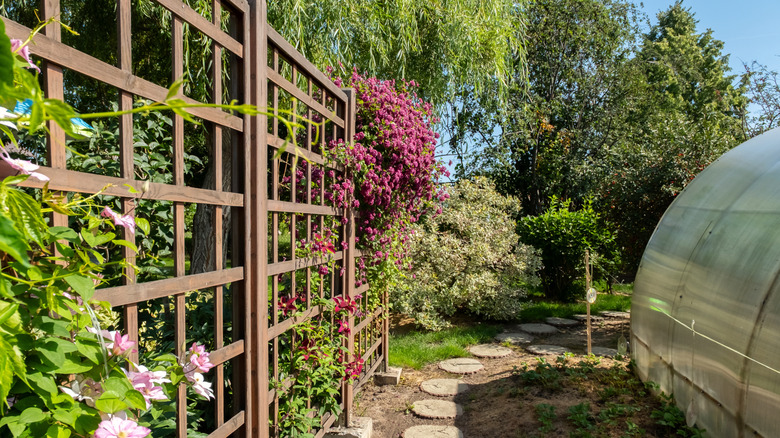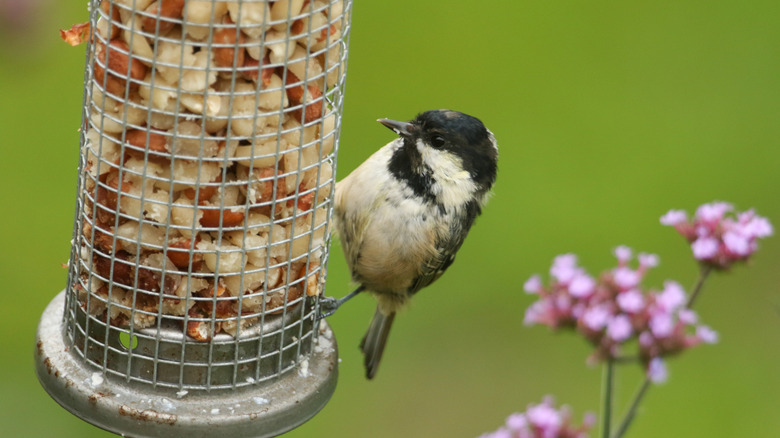That Old Coffee Container Is A Secret Weapon For Bringing Charm To Your Yard
Many people are charmed by the idea of birds meandering around their yard, but are hesitant to invest in all the accouterments. Luckily, you've likely got everything you need to start building a backyard bird haven sitting right in your kitchen. To get started, clean out a plastic coffee container and carve out some holes for a makeshift bird feeder.
Start off by cleaning the container to remove any coffee powder. Caffeine is toxic to birds, so care should be taken to remove any potential danger. From here, cut out two or three holes in the side, large enough for small birds to comfortably fit their heads inside. While tin containers will also work, they will take a lot more effort to cut through carefully, not to mention they pose more of a risk to birds sticking their heads in. Keep the lid on for easy and secure refilling, as well as to protect it from the rain. If your DIY birdfeeder does get waterlogged, try making small holes and lining the bottom with mesh to allow the water to drain while keeping the birdfeed secure. Another concern is squirrels, notorious for nabbing food. The key to keeping squirrels out of your bird feeder is actually an old metal pie pan. Place this underneath the feeder (preferably halfway up a PVC pipe base) to prevent these unwanted visitors from reaching it or running away with it altogether.
What to put in your bird feeder
Once you've made your new bird feeder, the bigger question emerges: What do birds eat? Generally, bird feeders are filled with a variety of seeds, which should be uncooked and ideally low in oil content. Another common supplement is suet, the raw, hardened fat from cattle and other animals. Suet is calorie-dense and a great source of fat, which keeps the birds warm, giving them the energy to go about their daily needs in winter. This can be bought from any pet store, but you can also make your own by cooking down beef tallow.
Some kitchen staples are also great to share with avian friends, including unsalted peanuts (emphasis on unsalted as sodium can dehydrate the birds) and even certain cheeses. If you already supply suet, then the cheese might not be necessary, as its main benefit is also fat and protein, but it's good to keep in your back pocket. Another neat supplement is actually eggshells – just one of many ways to use eggshells. These are high in calcium and easy for them to digest. A little prep needs to be done, including sterilizing the shells in hot water, but from there, you can just crush them up and add the powder to your feeding mix.


